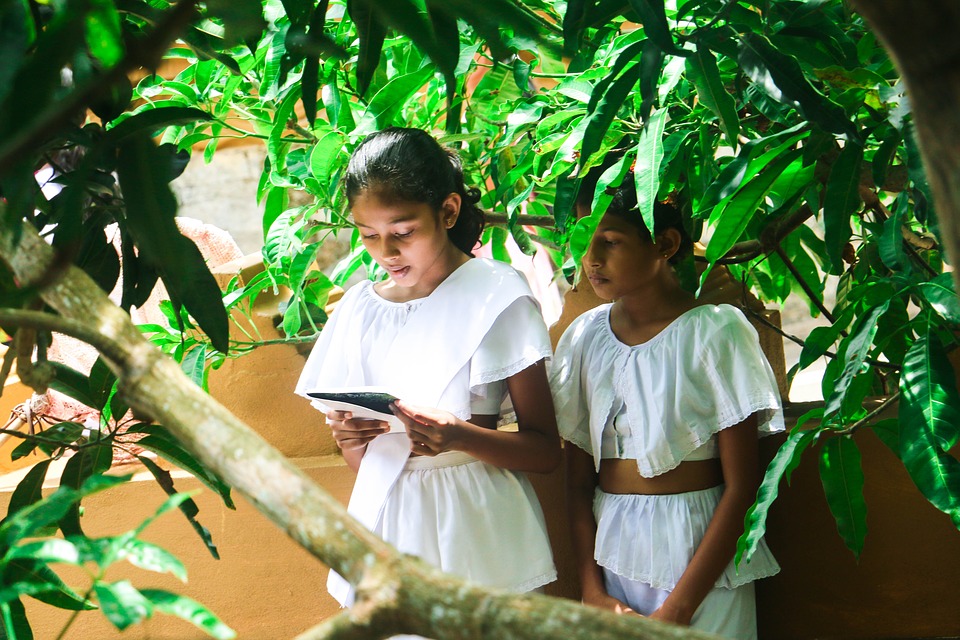Period Poverty and Stigma in Sri Lanka

Kristina Fernando, BHSc candidate, Western University
November 29, 2021
This blog is part of the GHE@Western blog series inspired by 16 days of activism
Growing up, my family and I would visit Sri Lanka every few years in order to stay connected to our roots and become immersed in our culture, all while visiting family and relatives. These trips were so eye-opening and peaceful as I was able to truly appreciate Sri Lanka’s beauty and revel in its diversity, however, it wasn’t until I was much older that I was able to identify the inequality that was present there as well.
When I was 15, I went to Sri Lanka and got my period at my aunt’s house in the village where my dad grew up. As a South-Asian girl, coming from a developed country, I was very privileged in that I personally had access to all the necessary sanitary items as I remembered to bring them on the plane and even bought some at the airport; this wasn’t the case for my cousins and the other women in my family.
When I asked my aunts and cousins what they did/ what products they used during their menstruation cycles, they hushed me, brought me to a corner and told me not to ask those questions out loud. They told me that they did not have access to menstrual products and would instead resort to using old clothing, towels and even newspapers. This shocked me as this was something I couldn’t even imagine doing at the time; how did they not have access to the most basic of sanitary items? How come I had a surplus of menstrual products at my disposal when they were just lucky if they could even find one? I came to learn that this was not an isolated issue novel to my little village in Sri Lanka as period poverty and stigma was, is, a very prominent issue that effects millions of menstruators all over the world. This in turn sparked my passion for social justice and I made it my mission to fight for the voices of those unheard.
In many South Asian countries, period poverty, defined as having limited-to-no access to menstruation products during one’s menstruation cycle, is exacerbated by period stigma, where the dominant discourse paints menstruation as taboo, unclean and unholy (The Borgen Project, 2018). Period poverty and stigma work together to produce inequities that result in many menstruators facing adverse physical and social consequences. This can include menstruators, particularly cis-gendered women, avoiding work and school, as more than a third of girls in Sri Lanka reported missing school to avoid embarrassment and stigma (The Borgen Project, 2018). I was personally surprised by this until I read that 60% of teachers thought that menstrual blood was impure and that 30% of them thought that vaginal insertion of a tampon resulted in adverse side-effects (Department for International Development, n.d.). It is thus vital that the shame and stigma surrounding menstruation is eradicated, as individuals should not feel oppressed due to something that they personally cannot control. Together, we can fight to ensure that menstruators all over the world have equal and equitable access to menstruation products so that they may thrive and live in a society that not only values them but respects them as well. This is not a women’s rights issue; it is a human rights issue. Period.
References
Department for International Development. (n.d.). Menstrual hygiene management in schools in South Asia. Retrieved from https://menstrualhygieneday.org/wp-content/uploads/2018/04/MHM_SNAPSHOT_SRILANKA.pdf
The Borgen Project. (2020). The Fight Against Period Poverty in Sri Lanka. Retrieved from https://borgenproject.org/period-poverty-in-sri-lanka/
Photo by Ama_Dam_Vila: Retrieved from https://pixabay.com/images/id-1829115/
